

Report from a World Transforming


A Report from the Front (Picket) Lines of DC's Restaurant Wars
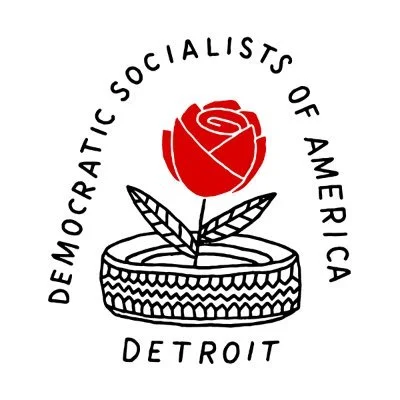

Organizing 101: Jump-Starting Action Through Education
By: Casey G.

[Editor’s Note: The final session of the Political Education Committee’s fall Organizing 101 series, “Always Be Organizing,” will be in Dearborn at 6:30 Thursday, November 20, followed by a social hour. You don’t need to have attended the first three sessions to attend the last! RSVP here.]
I’ve paid my $5 a month to DSA since about 2020, attending one General Meeting but always ending up finding one reason or another not to really get involved. After moving to Detroit this summer, I pulled up the Detroit DSA Events page and told myself it was time to stop sitting on the sidelines. I’d spent years agreeing with the principles, nodding along online, but I wanted to actually meet people and be part of the work.
Organizing 101 felt like a good first step — a way to connect what I believe with what I do.
At its heart, Organizing 101, based on the Labor Notes book Secrets of a Successful Organizer, is about connection. The series introduced the foundations of union organizing — how to move from appreciating the idea of a union to the practical, everyday skills we need to bring people together and build solidarity in our workplaces. Before Zoom calls and printing stickers, organizing begins with talking to your coworkers.
Session One, Beating Apathy, focused on moving from frustration to collaboration. How do you go from venting about work to building real momentum and solutions with your colleagues? We practiced early organizing conversations — asking good questions to uncover issues, and helping coworkers move from “this is just the way things are” to realizing they have permission to feel frustrated, to dream, and to hope for (and potentially help build) a better workplace.
The basics of being a good listener don’t change, but it’s always useful to have a refresher. The handout taught me our brains process thoughts four times faster than spoken speech, making it easy to fill in the gaps in someone’s story with our own assumptions. We practiced role-playing exercises to make sure we were slowing down enough to focus on what was really being said, and how to show you hear what someone’s saying.
Our leaders also walked us through the organizer’s bullseye — from the core group (the folks thinking about organizing even on their days off), to activists and then supporters, and how to identify the disengaged or those hostile to the campaign. It was helpful to visualize where different people might fall, and how to meet each of them where they are.
Session Two, Organizing Your Leadership Team, built on that foundation with a hands-on exercise. We were given quotes from conversations with five hotel employees and asked to identify which one might be a natural leader. There was a bit of logic and deduction involved — who did coworkers mention most often? Who already had everyone’s phone numbers? From there, we began to think about the logistics of our own workplaces: Who spends time together outside of work? How many departments and shifts are there?
Then we talked with those around us about examples in our own workplaces of times we might need to move fast and mobilize. Participants were open and vulnerable, sharing experiences from their workplaces and giving examples of grievances and goals.
In a small workplace, maybe you could reach everyone yourself — but it’s not exactly in the spirit of solidarity to carry that alone. True organizing means identifying and empowering others to lead alongside you, creating a network strong enough to mobilize everyone.
Session Three, Turning an Issue into a Campaign, featured Michigan State Representative Dylan Wegela, who shared lessons from his time organizing a statewide strike with teachers in Arizona. Moving from identifying issues, we then identified targets for the campaign (people who had the ability to change these things) and potential strategies. The strategy ideas were then put on a thermometer ranging from a relatively calm and cool idea like wearing red shirts on a Wednesday (the starting point for the Arizona campaign), to piping hot like a strike, or, in my favorite new phrase from the workshop, “Teacher January 6” (that one might have broken the thermometer).
My favorite part was an exercise where we were given five common workplace grievances he found with the teachers in Arizona, and participants brainstormed possible demands to address them. Afterward, we compared our ideas to the actual demands the teachers made in their campaign — out of the six demands the group had come up with, we’d accurately guessed half of them, most of which were solidified in the contract later.
Dylan’s reflections were honest and grounding — some campaigns succeed, and many don’t. It was inspiring to hear both his victories and his honesty. Not every campaign wins, but every one builds skills, connection, and courage — and that, too, is a victory.

Organizing 101: Jump-Starting Action Through Education was originally published in The Detroit Socialist on Medium, where people are continuing the conversation by highlighting and responding to this story.
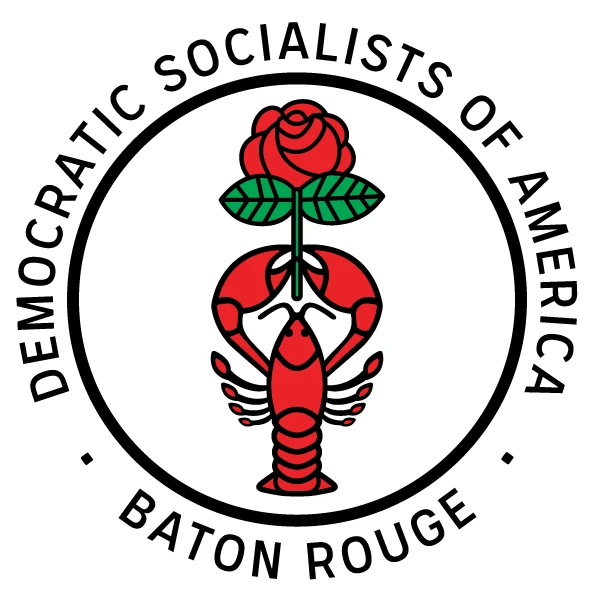

Compassion and Fairness for Immigrants
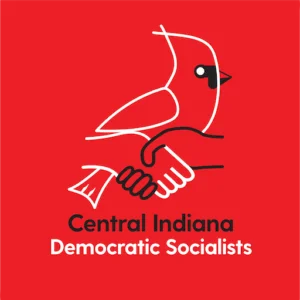

Central IN DSA distances itself from George Hornedo, condemns Zionism


Detroit DSA Turns Out for Starbucks Strikers — And So Do Customers
Detroit DSA Turns Out for Starbucks Strikers — And So Do Customers
By: Kristin Daniel

[Editors’ note: Kristin was part of Detroit DSA’s solidarity action Saturday, November 15, along with dozens of other DSA chapters across the country, to support Starbucks strikers. We leafleted five nonunion stores in metro Detroit to inform both baristas and customers about the workers’ strike for a union contract with decent pay and working conditions. Stay tuned to the Labor Working Group to find out about future actions next weekend.]
Standing on Woodward Avenue, trying to hold a poster that read “Solidarity with Starbucks Workers” in just the right way so the wind wouldn’t take it out of my hand, I smiled and waved along with my comrade, KC, as the first car turned in. As the car started to get into the line for the drive-through, the driver stopped and rolled her window down and asked what was going on.
“There’s a strike happening!” I answered, as KC stepped forward, handing the woman a small flier. We explained that Starbucks stores across the country were striking for a better contract, and that we were asking people to consider getting their coffee elsewhere for the duration of the strike.
“Hell yeah. I can absolutely go somewhere else today,” the woman responded, looking up from the flier. She exited the drive-through line, drove around the building, and honked and cheered as she turned back into the main road.
Although not every interaction for the rest of the day was as positive as the first, the community responded resoundingly positively. Some people in the drive-through line refused to roll their windows down, and others walking into the store took longer paths around the parking lot to avoid walking by us, but a truly surprising number of people were interested in hearing about the union.
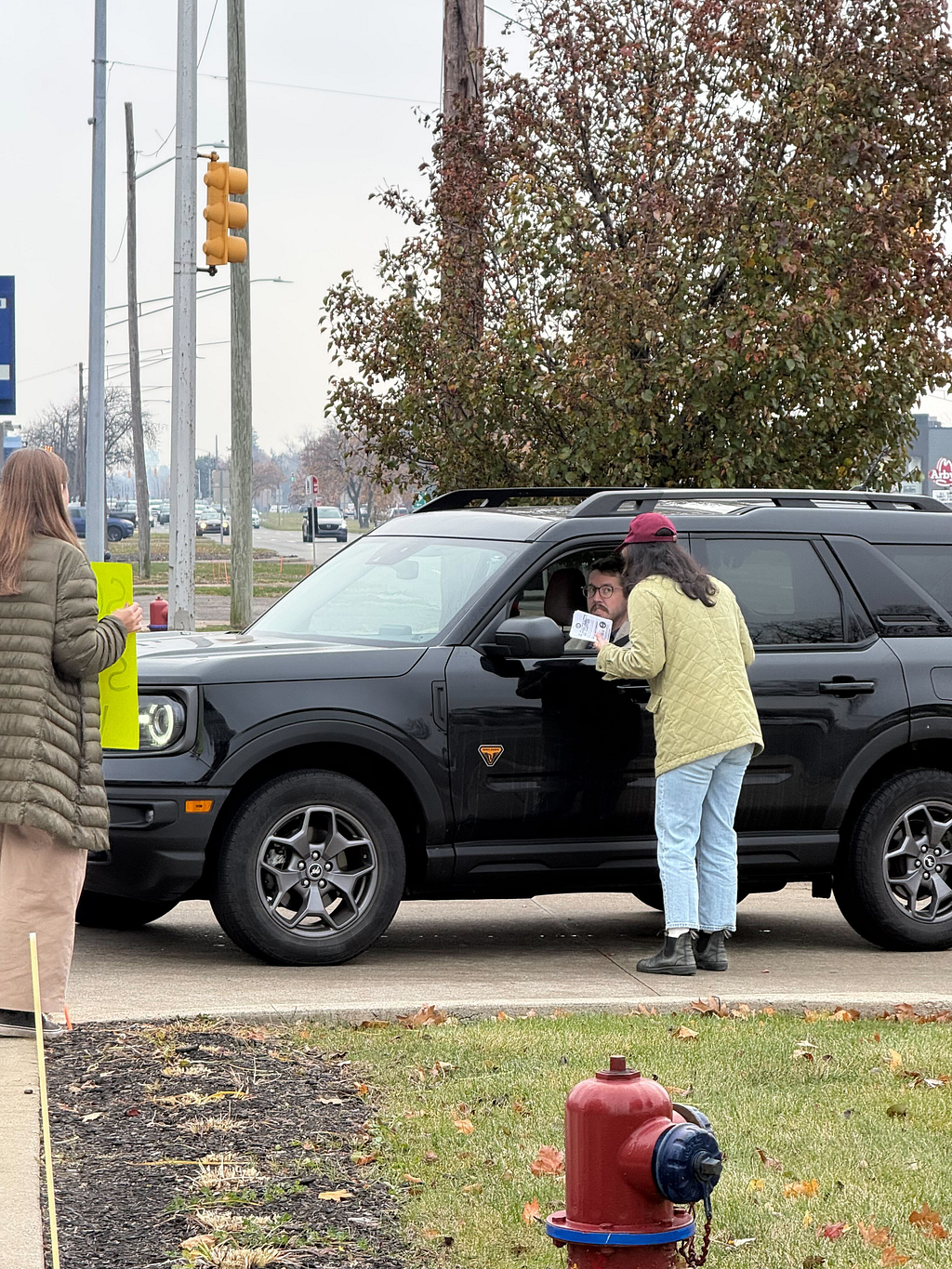
Although many of the people that we spoke to had already paid for a mobile order and did not want to go through the process of cancelling, they enthusiastically said that they would not come back until after the strike was over. Those that had yet to put in an order were excited to chat through options for local coffee shops nearby after hearing about the strike.
In general, people seemed curious and willing to engage. Many had not heard about the strike and wanted to hear about the demands of the workers. One woman we spoke to told us that she was part of a union, and that her union had just won a new contract, so she was happy to help others do the same.
Cars driving by honked and waved when they saw us standing outside the shop. Over a dozen people decided to go somewhere else for the day, and even more pledged not to come back. We ran out of fliers in about an hour, and I headed home feeling more connected to my community, hopeful about the future, and confident that Starbucks workers would get the contract that they deserved.

In the past few years, labor unions have reached a level of popular support that they hadn’t seen since the 1960s, but many people still have a stereotypical view of labor unions as being only possible for certain types of jobs. As fewer Americans are employed in things like manufacturing, the image of what a union job can be also needs to change. The current strike action by Starbucks Workers United (SBWU) is not only an opportunity for workers to fight for their own dignity and a fair contract, but also a great opportunity to demonstrate to a receptive public that workers in different sectors can successfully organize and improve their material conditions.
If my experience is any indication, many people that are headed to Starbucks are people that would have little opportunity to engage with the labor movement otherwise. Many people simply didn’t know that Starbucks workers had a union, much less that Starbucks Workers United was on strike. By standing in solidarity with SBWU during this strike, socialists can engage more working class Americans who are already sympathetic and help convert popular support to tangible wins.
As someone who is newer to the chapter, getting involved was very easy. Simply join the Labor Working Group Slack to get updates from the DSA Starbucks solidarity committee and find an action that you are able to attend. As noted, the community has been largely receptive, so don’t be scared to come out and speak with your neighbors about how they can help!
To support Starbucks workers, commit to boycotting Starbucks for the duration of the strike by signing their No Contract, No Coffee pledge, or donate to the strike fund.


Detroit DSA Turns Out for Starbucks Strikers — And So Do Customers was originally published in The Detroit Socialist on Medium, where people are continuing the conversation by highlighting and responding to this story.
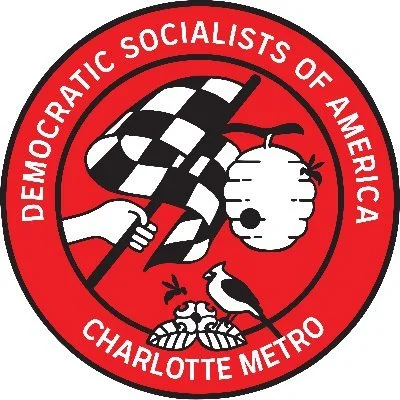

¡ICE y CPB, Fuera de Charlotte NC! / ICE and CPB, Get Out of Charlotte NC!
Español
Este fin de semana, la Oficina de Aduanas y Protección Fronteriza, fuerza policiaca personal de Trump, empezará a ocupar nuestra ciudad y secuestrar a nuestros vecinos para terrorizar a la comunidad inmigrante e intimidarnos a quienes nos oponemos. Charlotte Metro DSA condena esta invasión. Nos mantenemos en solidaridad con la clase trabajadora de todas las naciones . Lucharemos contra esta invasión con toda la gente de consciencia.
Estos ataques son parte de una historia larga del estado fomentando la división entre personas de la clase trabajadora para debilitar y amenazar a nuestras comunidades con agentes armados cuando parecemos demasiado fuertes.
Previamente en este año, iniciamos nuestra campaña para boicotear a Avelo. La aerolínea Avelo es una aerolínea de bajo costo que está bajo contrato con ICE para llevar a cabo vuelos de deportaciones. Estamos pidiendo a la gente que participe en el boicot para generar presión a la empresa y la Ciudad de Concord, ciudad de donde despegan los vuelos, para que cesen el contrato. Con este fin llevaremos a cabo una protesta el día 29 alrededor del aeropuerto Concord-Padgett, les invitamos a que se nos unan.
Otros grupos de la comunidad están trabajando activamente para luchar contra este fenómeno.
Por favor revisen y utilicen la red de migrantes de las Carolinas y su línea directa para reportar secuestros (704) 740-7737
Y también visiten Siembra NC para obtener detalles sobre el entrenamiento en vigilancia de ICE el 17 de noviembre.
Nuestro objetivo es organizar y unir a la ciudad para resistir estos secuestros. Por favor acérquese a nosotros para colaborar o involucrarse.
En Solidaridad,
El Comité Directivo de Charlotte Metro DSA
English
Today, Customs & Border Patrol, Trump’s personal police force, will begin occupying our city and abducting our neighbors to terrorize the immigrant community and cow domestic opposition. Charlotte Metro DSA condemns this invasion. We stand in solidarity with the working class of all nations. We will fight this invasion with all people of conscience.
These attacks are a part of the long history of capital & its state fomenting divisions among the working class to keep us weak and siccing armed agents on us and our communities when we appear too strong.
Earlier this year we began our Boycott Avelo campaign. Avelo airlines is a budget airline that has a contract with ICE for deportation flights. We are asking people to boycott the company and help us put pressure on the company and the City of Concord where they fly out of to get them to drop the contract. To that end, we’ll be having a protest on the 29th by the Concord-Padgett airport. We invite you to join us.
Other groups in the community have also been actively fighting back. Please check out the Carolina Migrant Network and use their hotline to report abductions: (704) 740-7737.
See Siembra NC for details about their upcoming ICE Watch trainings.
We aim to organize and unite the city to resist these abductions. Please reach out to collaborate or get involved.
In Solidarity,
The Charlotte Metro DSA Steering Committee


Thrive failed: now what?
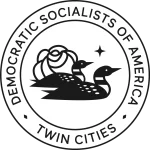

Who Is Our Movement For? Why TCDSA Must Shift Its Base of Support
The Dream of Tomorrow: What Mamdani’s Win Means for Silicon Valley DSA
How many times have you been told that real change is impractical? That America isn’t ready for something new? That we need to make compromises with an ever more ruthless fascist regime? However, the proof that we can dream bigger is here! Because Zohran Mamdani, a member of the Democratic Socialists of America’s New York City chapter, has won the popular support of his city’s people once more and he is now the Mayor-Elect of the city, the largest in the United States!
With all the attention on Mamdani and his organization, the Democratic Socialists of America or DSA, people may be wondering: what is DSA? What is socialism for that matter? What can socialism do for the average American? And what can people do to build the better future that socialism promises?
DSA is the largest socialist organization in America, with over 85,000 members, organizing and fighting for a better tomorrow in scores of local chapters. But what do socialists believe? For us at DSA, we believe socialism is when working people democratically and collectively control our lives and all aspects of our society, whether it be the government, the economy, or the workplace.
There are many ways in which such an approach under socialism can benefit the average American. Socialists are on the forefront of the struggle for affordable housing, healthcare, access to food, transit, and other necessities of life. Locally, DSA’s Silicon Valley Chapter has been a major contributor in the Measure A campaign to save Santa Clara County’s hospitals from shutdown amidst Trump’s budget cuts, Palestine solidarity work such as No Appetite for Apartheid, mutual aid work with groups like Food Not Bombs and Apoyate, and many more organizing efforts locally.
In an increasingly inequitable America, where billionaire oligarchs control most of the wealth in the richest country in world history, we believe that all people deserve a share of this hoarded wealth. We don’t want freedom to be reserved for the wealthiest in society; we want freedom for all! That is a dream we believe can become a reality!
Speaking to you from Silicon Valley DSA, Mamdani’s victory has meant many things for us. First, his win has shown working Americans everywhere that the policies we support, from healthcare to affordable housing, are popular among voters. But more importantly, it gives us organizers a window of opportunity to help our community. That includes you. We dream of a better world and believe you can help us.
While Mamdani criticized power and the problems in society, he, more importantly, gave tangible solutions as well, along with a plan to achieve these aims. He met with New Yorkers to hear about the issues that mattered to them, working to find tangible and imaginative solutions to address these issues. We at Silicon Valley DSA are cut of the same red cloth organizing in our local community in the South Bay for years. With their victory, we seek to emulate the impact NYC-DSA and Mamdani have left on their communities to deliver for our own. Be sure to join us and keep an eye on the calendar for future organizing. Just imagine what all of us will bring to Silicon Valley in the years to come.
Dare to dream big! A better world is possible. And when we fight, we win!
The post The Dream of Tomorrow: What Mamdani’s Win Means for Silicon Valley DSA appeared first on Silicon Valley DSA.